Reality Check: Do referendums bring about change?
- Published
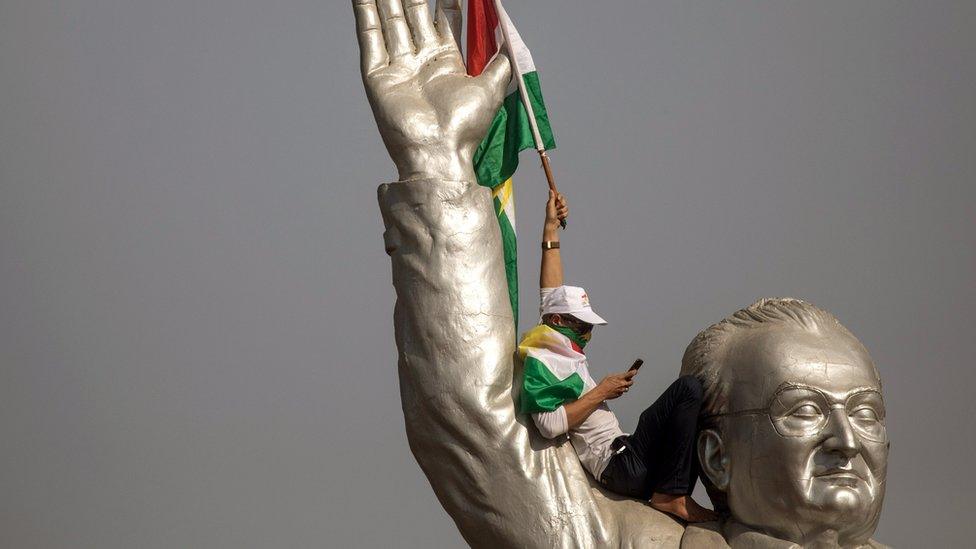
Referendums have allowed couples in Ireland to divorce, given Uruguayans ownership of their water supply and split Sudan into two separate countries.
But are they always so effective at bringing about change?
With controversial independence votes in Iraqi Kurdistan and Catalonia in Spain, some are hoping that the ballot box might create new countries.
The trouble is, history has shown that in only half of the cases where people have voted for independence, did they get it without violence.
Is change popular?
More often than not, when faced with a yes/no choice at the polls, people are more likely to choose change.
Dr Alan Renwick, from University College London, and Prof Stephen Fisher, of the University of Oxford, looked at 284 nationwide referendums, which took place in democratic countries between 1990 and 2016.
A majority of voters chose the change option over the status quo in 186 of them.
But a simple majority is not always enough.
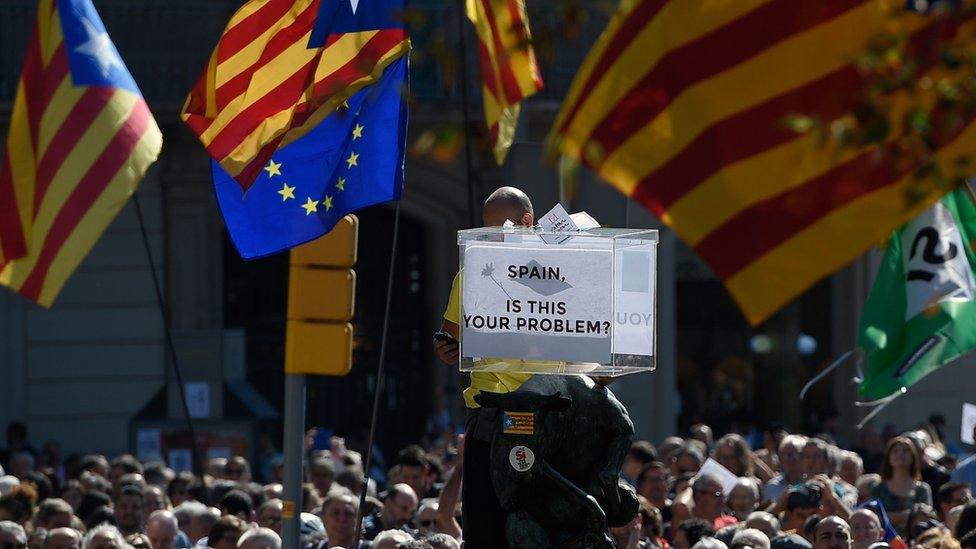
Spain's constitutional court has said a planned independence poll in Catalonia is illegal
Sometimes the threshold for success is higher than 50% or voter turnout has to reach a certain level before the result of the referendum "passes".
Once you take that into account, only 111 of those 284 referendums "passed" in favour of change.
Secrets of success
For the referendums they examined, the government's opinion mattered.
When the government actively supported change, it passed 53% of the time. If it didn't, then success dropped to 26%.
And how the referendum came about also seemed to make a difference.
For citizen-initiated referendums, the change option passed only a quarter of the time, but when parliament called the referendum, it passed 45% of the time.
That went up to 56% when the referendum was required by the constitution to make the change in question.
Change not guaranteed
Independence referendums are even more likely to pass. Since the early 1800s there have been 54 independence votes, of which 43 have passed.
Of those, peaceful independence followed in 22 of them, while in the rest independence either did not happen or did occur after a period of violence.
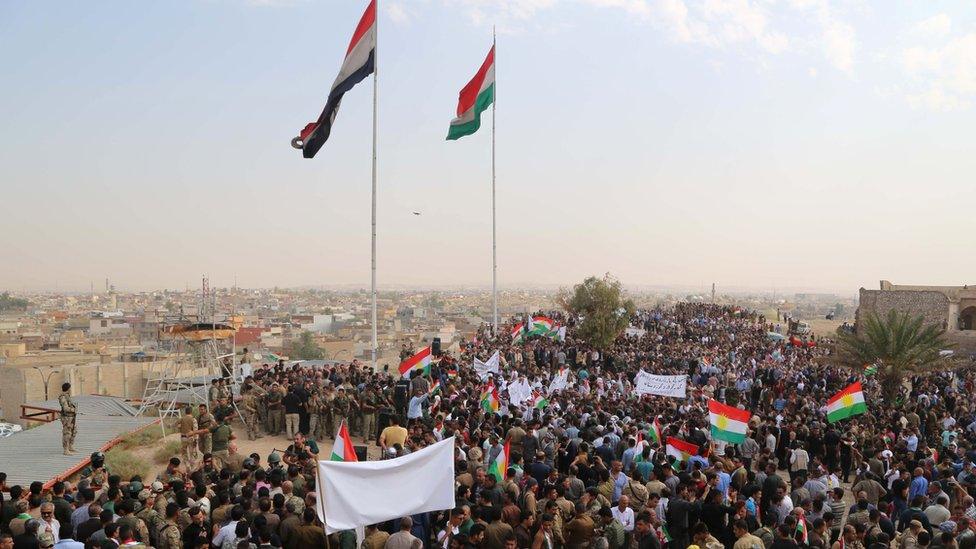
The Kurdish independence referendum is going ahead despite opposition from the Iraqi government and the US
However, in some cases, such as this week in Kurdistan, the referendum is "advisory" and non-binding.
Sometimes, there's the question of whether the result will be honoured by the government, or the international community - as Kosovo (1991) and South Ossetia (1992) found out.
And of course, matters can turn violent. Conflict in the former Yugoslavia followed several declarations of independence after referendums in the early 1990s.



- Published20 September 2017
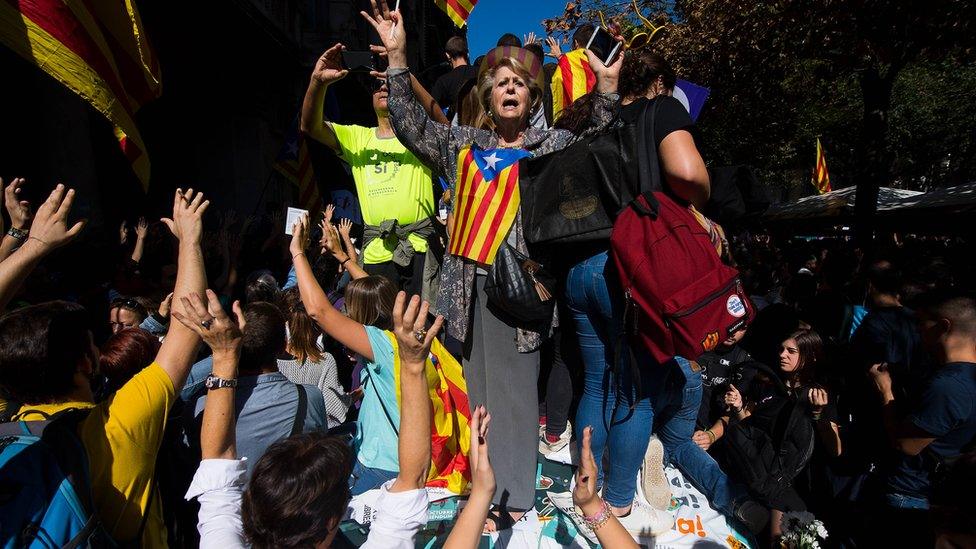
- Published18 September 2017

- Published18 September 2017
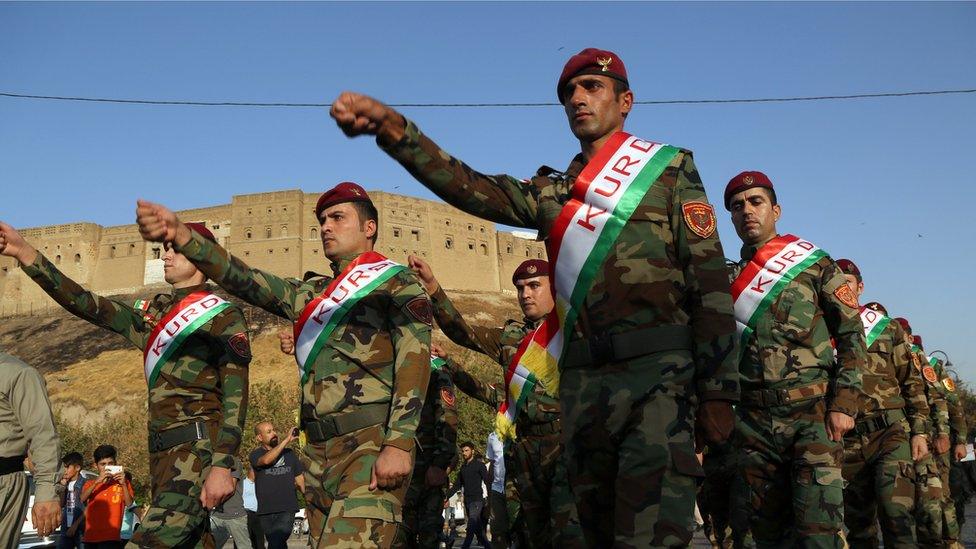
- Published16 September 2017
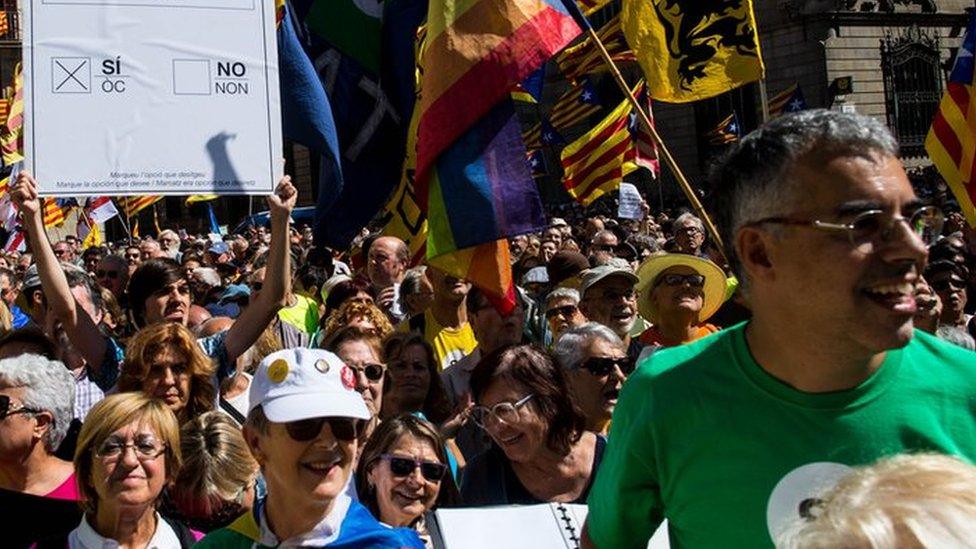
- Published15 September 2017
